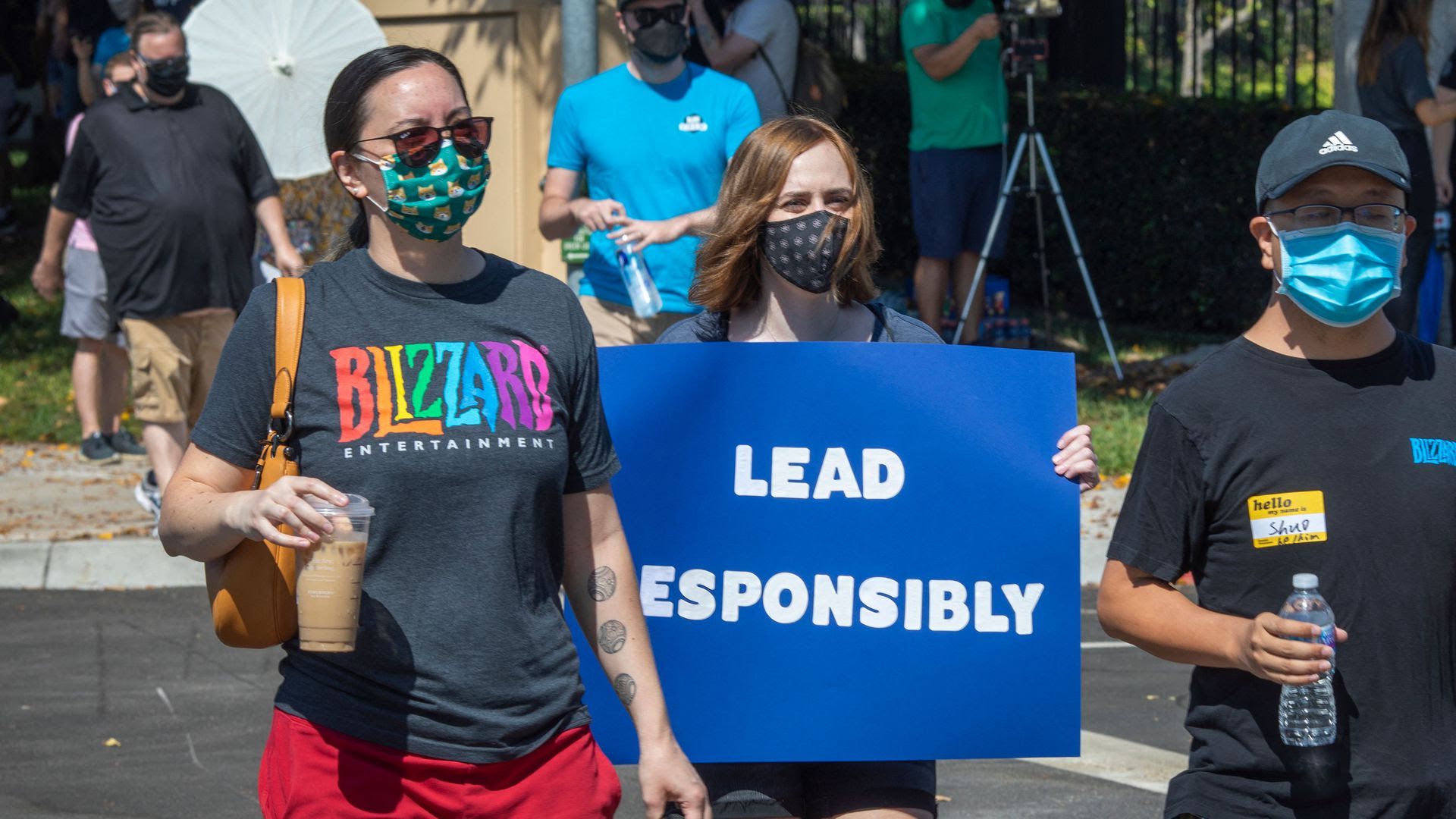Judge to approve Activision Blizzard $18 million settlement
Add Axios as your preferred source to
see more of our stories on Google.

Activision Blizzard workers protest during a walkout last fall. Photo: David McNew/AFP via Getty Images
A settlement between Activision and the federal government over sexual misconduct at the company is all but a done deal, after a federal judge said in court today that she intended to sign off on it.
Why it matters: The agreement will not end courtroom fights over years of alleged sexual misconduct and discrimination at the makers of Call of Duty and World of Warcraft, but it would start a phase of increased oversight and recompense.
The details: The settlement between Activision and the Equal Employment Opportunity Commission (EEOC) calls for an $18 million victims fund.
- Claimants must have worked at Activision on Sept. 1, 2016, or later and have a “viable” sexual harassment, pregnancy discrimination or related retaliation claim.
- It also sets up three years of federal oversight of the company to ensure internal reforms.
- The settlement is largely the same as it was when the publisher and the feds announced it in September.
- But it was subject to review by U.S. District Judge Dale Fischer, who requested changes along the way, including clarity that women who brought complaints against Activision could go public about them, even if the company was gagged from doing so.
Between the lines: The approval process for the settlement, or consent decree, played out in unexpectedly dramatic fashion, as a bitter rivalry emerged between the EEOC and investigators in the state of California.
- The two parties had begun investigating Activision in 2018, seemingly agreeing to split the work, but that division became acrimonious by the time California sued Activision last summer and spilled into the settlement process as California repeatedly tried to object.
- California has claimed the settlement would authorize Activision to destroy documents (speculative, the judge said), was too small and would force claimants to forgo their right to sue Activision in the future if they agreed to receive victims' fund compensation. The EEOC disputed this, saying the release only covers overlapping claims, not issues of pay.
What’s next: At today’s hearing, a lawyer for California said the department planned to appeal the “substance” of the consent decree.
- The state also has its own lawsuit ongoing against Activision, an effort undermined by EEOC’s contention that California’s lawyers acted improperly.
- Microsoft said in January that it wants to buy Activision for $69 billion. The settlement would survive the purchase if it is approved, an EEOC rep told Axios.
Sign up for the new Axios Gaming newsletter here.
